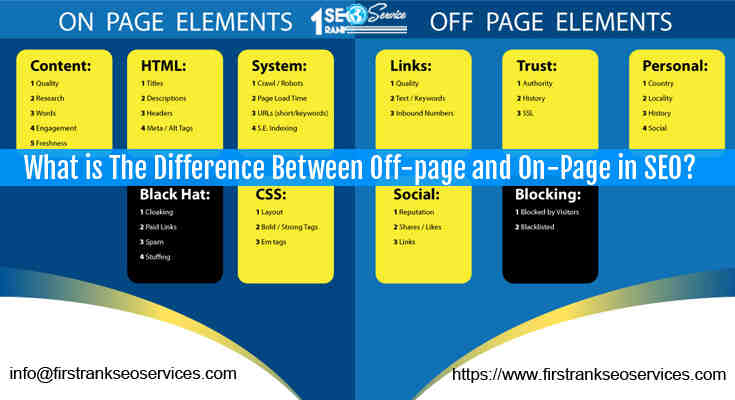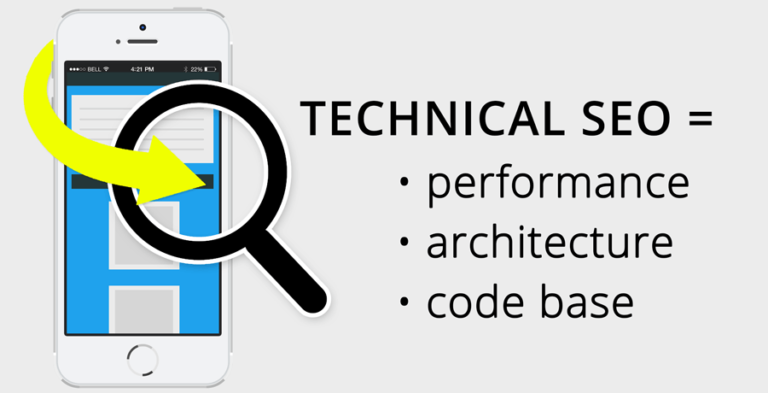The Benefits of Entity SEO

Understanding Entity SEO
Understanding Entity SEO is crucial for the success of any online business. Entity SEO refers to the optimization of entities, such as people, places, things, and concepts, in order to improve search engine visibility. By understanding the basic concept of Entity SEO, businesses can leverage the power of search engines like Google’s Knowledge Graph and the Panda Update to their advantage. Incorporating entities into your SEO workflow is essential for achieving higher rankings and attracting relevant traffic to your website. Furthermore, integrating Entity SEO into your content strategy can greatly enhance user engagement and improve the overall user experience. By using AI tools for SEO and content marketing professionals, businesses can effectively implement Entity SEO techniques and optimize their web entities for better visibility in search engine results pages. Understanding the importance of keywords and utilizing schema markup can also play a significant role in improving the visibility of entities in search results. Therefore, having a comprehensive understanding of Entity SEO and its various aspects is one of the primary requirements for successful Search Engine Optimization.
The Basic Concept of Entity SEO
Entity SEO is a concept that plays a crucial role in optimizing content for search engine visibility. It involves understanding and leveraging the power of entities, which are specific people, places, things, or concepts that have a distinct presence on the web. Google, being the dominant search engine, has a rich knowledge graph that connects different entities. For example, if you search for a famous person, you will see a box on the right side of the search results page that provides a brief biography and relevant information about that person. This knowledge graph is powered by entity relationships, which help Google understand the context and meaning behind different entities. By incorporating entity SEO into their strategies, businesses can improve their chances of appearing in these knowledge graphs and gaining more visibility.
Entity SEO goes beyond traditional keyword optimization and focuses on building relationships between entities to improve search engine rankings. For example, a business that offers cookie delivery services can create content that connects entities like “cookies,” “delivery,” and “online orders.” By properly structuring the content and using schema markup, the business signals to search engines that it offers specific services related to cookies and delivery. This can enhance visibility in search results when users search for phrases like “cookie delivery near me.” Additionally, entity SEO involves understanding the policies and guidelines set by search engines to ensure compliance and avoid penalties. Conducting an entity audit and regularly reviewing and optimizing content can help businesses align their SEO efforts with the evolving landscape of entity SEO.
Importance and Benefits of Entity SEO
Entity SEO is of utmost importance in today’s digital landscape. With Google’s emphasis on the Knowledge Graph and the constant evolution of search algorithms like the Panda update, it has become crucial for businesses to understand and implement entity SEO strategies. By optimizing their online presence to align with entities, companies can enhance their visibility on search engine result pages (SERPs) and improve their overall SEO performance.
One of the key benefits of entity SEO is the ability to establish authority and credibility. When a website is associated with authoritative entities, such as well-known brands or industry experts, it gains trust from both users and search engines. This can lead to higher rankings in organic search results and increased organic traffic. Additionally, by using structured data and schema markup, businesses can provide search engines with more context about their content and enable rich snippets, which can further enhance visibility and click-through rates. In essence, entity SEO allows companies to paint a clearer picture of who they are and what they offer, making it easier for search engines and users to understand and engage with their online presence.
The Impact of Google’s Knowledge Graph and Panda Update
Google’s Knowledge Graph and the Panda Update have had a significant impact on the world of SEO. The Knowledge Graph, a knowledge base that Google uses to enhance search results, has changed the way Entity SEO is approached. Entities, such as people, places, and organizations, play a crucial role in the Knowledge Graph, and understanding their relevance and connections is essential for effective Entity SEO. The Panda Update, on the other hand, has focused on penalizing low-quality content and rewarding websites with high-quality, user-friendly content. This update has made it clear that Entity SEO is not just about keywords and indexing, but also about providing valuable information and a positive user experience. Incorporating Entity SEO into a content marketing strategy can help improve organic search rankings and drive more traffic to websites. By leveraging the power of entities and creating high-quality content that aligns with the interests and needs of users, marketers can enhance their SEO efforts and achieve better visibility in search engine results pages.
The Role of Google’s Knowledge Graph in Entity SEO
The Role of Google’s Knowledge Graph in Entity SEO
Google’s Knowledge Graph plays a crucial role in the success of Entity SEO. By understanding entities and their relationships, the Knowledge Graph enables Google to provide more accurate and relevant search results. This means that when users search for certain entities or related keywords, the search engine can provide a more comprehensive and informative response. For example, if someone searches for “best restaurants in New York City,” the Knowledge Graph can display a selection of restaurants, along with relevant information such as ratings, reviews, and contact details. This interaction between entities and the Knowledge Graph enhances the user experience and reinforces the importance of optimizing websites for Entity SEO.
In addition, the Knowledge Graph can also make predictions about entities based on search context and user intent. This further emphasizes the significance of Entity SEO in driving organic traffic and improving search engine rankings. By providing search engines with structured data and properly optimizing content for entities, website owners and marketers can increase the visibility and relevance of their webpages. It is crucial to consider not only the SEO keywords but also the relationships between entities when developing content for Entity SEO. By leveraging the power of the Knowledge Graph, websites can achieve higher visibility and attract more traffic through improved search engine rankings.
Influence of Panda Update on SEO Practices
The Panda update by Google had a significant impact on SEO practices, including those related to Entity SEO. One of the main focuses of the update was to penalize websites with low-quality or duplicate content. This forced content creators and SEO professionals to pay closer attention to the quality and uniqueness of their content. For Entity SEO specifically, it meant that entities needed to be properly defined and optimized within the content to avoid being flagged as low-quality. This update reinforced the importance of creating valuable and relevant content that aligns with the intent of the user’s search query.
Additionally, the Panda update changed the way search engines evaluate websites for ranking purposes. It placed more emphasis on user engagement metrics, such as bounce rate and time spent on page. This shift in focus prompted SEO professionals to not only optimize keywords and metadata, but also to prioritize factors that enhance the user experience, such as website speed, mobile optimization, and clear navigation. Entities played a vital role in this aspect, as they help search engines understand the context and relevance of the content. As a result, SEO practices had to evolve to incorporate Entity SEO as a crucial component of overall Search Engine Optimization strategies.
Content Marketing and Entity SEO
Content marketing plays a crucial role in the implementation of Entity SEO. With search engines increasingly relying on entity signals to understand and rank content, it is essential for marketers to integrate Entity SEO practices into their content strategy. By creating high-quality and relevant content that aligns with the interests and needs of entities, marketers can enhance their visibility in search engine results pages (SERPs). Furthermore, the use of keywords and entities within the content helps search engines understand the context and relevance of the information being presented. As algorithms become more sophisticated, content personalization becomes a key factor in improving user engagement and driving organic traffic. By tailoring content based on entity interests, marketers can create a personalized experience that resonates with their target audience. Overall, content marketing and Entity SEO go hand in hand, allowing businesses to optimize their content for search engines and deliver valuable information to their audiences.
Integration of Entity SEO into Content Strategy
For successful integration of Entity SEO into a content strategy, it is important to first understand the concept of Entity SEO. Entity SEO involves optimizing content to align with entities, which are people, places, or things that have a distinct identity on the web. By incorporating key entities into the content strategy, such as the brand, keywords, and author search, the overall SEO performance can be greatly improved. This integration ensures that the content aligns with the search engine’s understanding of entities and provides relevant results to user queries. By focusing on entities, rather than just keywords, the content can be better aligned with user intent and search engine algorithms.
In order to effectively integrate Entity SEO into the content strategy, it is crucial to consider the technical aspects as well. This includes configuring the robots.txt file and meta tags to properly instruct search engine bots about the content and settings of the website. Additionally, implementing structured data markup, such as schema.org, can provide search engines with more information about the entities mentioned in the content. This helps search engines understand and interpret the content better, leading to improved visibility in search engine results pages (SERPs). Furthermore, optimizing content for different languages and translations can also be a crucial factor in Entity SEO, as it allows the content to reach a wider audience and cater to their specific search queries. By integrating these technical aspects into the content strategy, companies can maximize the benefits of Entity SEO and enhance their overall Search Engine Optimization efforts.
Entities and Their Impact on Engagement and User Experience
Entities play a crucial role in engagement and user experience in the realm of entity SEO. By optimizing content to focus on specific entities, marketers can better align their marketing strategy with what users are actively searching for. This approach involves conducting extensive research on relevant entities and incorporating those entities into content in a natural and meaningful way. By doing so, entities can enhance the overall user experience, making it easier for individuals to find the information they need and engage with the content. This, in turn, can lead to increased visibility in search engine results and improved SEO performance.
In the context of SEO, entities refer to the various elements that represent a specific person, place, thing, or concept. These entities are the building blocks of search engine optimization, as search engines rely on understanding the relationships between entities to provide accurate and relevant search results. By leveraging the power of entities in entity SEO, marketers can improve their online presence and increase their chances of appearing in search engine results for relevant queries. This is why understanding the impact of entities on engagement and user experience is crucial for any entity SEO strategy.
Effective Tools and Techniques for Entity SEO
To effectively implement Entity SEO, there are a variety of tools and techniques available for professionals in the field. One important tool is AI, which can assist with SEO and content marketing strategies. AI tools can analyze data and identify patterns to optimize the use of keywords and entities. Additionally, performing an entity audit is crucial in understanding the current entity landscape of a site and identifying areas for improvement. This can be done using various tools that provide insights into the entities associated with a particular website. By utilizing these tools and techniques, businesses can enhance their Entity SEO strategies and improve their visibility on search engine result pages.
AI Tools for SEO and Content Marketing Professionals
AI tools have revolutionized the field of SEO and content marketing. They have made it easier for professionals to optimize their websites for Entity SEO and improve their overall SEO workflow. These tools use advanced algorithms and machine learning to analyze data and provide valuable insights and recommendations for improving search engine rankings. With the help of AI tools, professionals can identify relevant entities related to their content, understand their semantic relationships, and optimize their websites accordingly. This not only helps in attracting organic traffic but also improves user experience and engagement on the website.
Companies offering SEO services can make use of these AI tools to enhance their entity SEO strategies. These tools can assist in identifying and analyzing entities that are most relevant to the company’s niche, thus allowing them to create effective content marketing campaigns. Furthermore, AI tools can help in monitoring and analyzing the performance of these campaigns, providing valuable insights on the impact of entity SEO on search engine rankings and user engagement. By using AI-powered company SEO tools, professionals can stay ahead in the competitive world of SEO and ensure that their websites are optimized for the latest algorithms and trends set by Google and other search engines.
Understanding Entity Audit and Its Implementation
Entity SEO plays a crucial role in improving search engine rankings and driving organic traffic to a website. One of the key components of implementing entity SEO is conducting a thorough entity audit. An entity audit involves analyzing the different entities associated with a website, such as its content, metadata, and schema markup, to ensure they align with the overall SEO strategy. By conducting an entity audit, businesses can identify any gaps or areas of improvement in their entity SEO, allowing them to optimize their website for better visibility and relevance in search engine results. Additionally, implementing an entity audit can help companies better understand their target audience and tailor their content and messaging accordingly.
When it comes to implementing an entity audit, there are various tools and techniques available. For instance, using AI tools for SEO and content marketing professionals can streamline the process of analyzing and optimizing entities. These tools can provide valuable insights into the keywords, schema markup, and content structure that are most effective for entity SEO. Additionally, understanding the role of schema in entity SEO is crucial. Schema markup helps search engines better understand the context and meaning behind website content, making it easier for them to categorize and rank the website in search engine results. By implementing schema markup for entities, businesses can improve their visibility in search engine results and enhance their overall SEO strategy.
The Connection between Entities and SEO Workflow
Incorporating entities into the SEO workflow is crucial for optimizing search engine results and improving user experience. Entities, as defined by Google’s knowledge graph, are people, places, things, or concepts that have unique attributes and are connected to other entities. By understanding the relationship between entities and SEO, companies can enhance their content strategy to align with the search intent of users. This includes using relevant keywords and structured data markup, such as schema, to provide search engines with a clear understanding of the entity’s context and relevance. By considering entities at every step of the SEO process, from keyword research to content creation and optimization, businesses can ensure their website’s content is optimized for entity SEO and improves search engine rankings.
Incorporating Entities into SEO Workflow
Incorporating entities into your SEO workflow is crucial for optimizing your website’s visibility and search engine ranking. With the rise of entity SEO, it is essential to understand how to leverage Google’s knowledge graph and the power of entities to your advantage. By conducting thorough keyword research and identifying the most relevant entities for your content, you can create optimized webpages that appeal to both search engines and users. Engaging with entities in your content helps Google recognize your website as a reliable source of information, increasing your chances of appearing in relevant search results. By adopting an entity-centric approach to SEO, you can enhance your website’s visibility and engagement, ultimately boosting your organic traffic.
When incorporating entities into your SEO workflow, it is important to consider the various aspects that contribute to the success of entity SEO. Start by optimizing your meta tags, headers, and URLs with relevant entity information to provide search engines with clear signals about your content. Additionally, ensure that your website’s content is structured in a way that is easily accessible and understandable by both search engines and users. By linking your content to reputable sources and encouraging user interaction through comments and social media shares, you can further enhance the entity SEO of your website. Remember, entity SEO is an ongoing process that requires continuous monitoring and adjustments to keep up with the ever-evolving world of search engine optimization.
SEO Entity Tools Available for Companies
SEO Entity Tools are indispensable for companies looking to implement effective Entity SEO strategies. These tools assist in optimizing websites by incorporating and highlighting entities within the content. One such tool is the schema, which plays a pivotal role in Entity SEO. By using schema, companies can categorize their content and make it more easily understood by search engines. Another essential tool is the entity audit, which helps companies assess and improve their Entity SEO implementation. By analyzing the use of entities and their impact on search engine rankings, companies can fine-tune their SEO efforts for better results in SERPs.
Entities are a core component of Entity SEO, and companies need the right tools to leverage them effectively. By using SEO Entity Tools, companies can optimize their website’s design and content to improve their search engine rankings. These tools aid in identifying and incorporating entities throughout a website, ensuring that search engines can easily understand the context and relevance of the content. With the help of Entity SEO tools, companies can enhance their overall SEO strategy and increase their visibility in organic search results. By optimizing their website with the right tools, companies can stay ahead in the competitive world of Search Engine Optimization.
Schema and Its Role in Entity SEO
Schema plays a crucial role in Entity SEO as it helps search engines understand the content of a website in a more structured and meaningful way. By implementing schema markup, website owners can provide search engines with additional information about the entities mentioned on their site. This, in turn, allows search engines to better comprehend the context and relationship between different topics and entities mentioned within the content. Schema markup helps search engines display more relevant and accurate search results by presenting the information in a way that is easily understood by both search engines and users. In essence, schema markup acts as a data markup language that provides search engines with a clear point of reference for the various entities mentioned on a website, ultimately enhancing the visibility and relevance of the website in search engine optimization. By avoiding mistakes in implementing schema markup and ensuring that all entities are properly marked up, website owners can optimize their content and improve their Entity SEO strategies.
The Importance of Schema in Entity SEO
The Importance of Schema in Entity SEO cannot be overstated. Schema markup plays a vital role in helping search engines understand the entities mentioned on a webpage. By providing structured data through schema markup, webmasters enable search engines to identify and categorize the entities accurately. This, in turn, enhances the visibility of the website and improves its chances of ranking higher in search engine results pages (SERPs). Implementing schema markup effectively can greatly benefit the overall entity SEO strategy, as it helps search engines map the relationship between entities, making it easier for them to comprehend the content and context of the webpage.
Schema markup also gives content creators an advantage in optimizing their content strategy. By utilizing relevant schema markup, they can provide additional information about the entities mentioned in their content, such as their location, type, or related topics. This not only helps search engines better understand the content but also enables them to provide more specific and accurate search results to users. In addition, schema markup can enhance the appearance of the search engine results by displaying rich snippets, knowledge graphs, and other visually appealing features that attract users’ attention. Incorporating schema markup into entity SEO strategies is, therefore, an essential practice that should not be overlooked.
Practical Use of Schema for Web Entity
Practical Use of Schema for Web Entity:
In the world of Entity SEO, utilizing schema markup can play a crucial role in enhancing the visibility and relevance of a website. By incorporating schema markup, site owners can provide search engines with specific information about their entities, such as their name, address, contact details, and more. This enables search engines to better understand the website’s content and improves its chances of appearing in relevant search results. Moreover, schema markup can also optimize the display of search engine results by adding rich snippets, which can enhance the overall user experience. By implementing schema markup effectively, site owners can align their website with search intent and improve their SEO efforts.
Blogging becomes more effective when combined with the use of schema markup for web entities. By incorporating schema markup into blog posts, site owners can provide search engines with additional information about the entities mentioned in the content. This helps search engines better understand the context and relevance of the blog post, which can result in higher rankings for targeted keywords. Additionally, schema markup can increase the visibility of blog posts by displaying rich snippets in search engine results, making them more appealing to users. By leveraging the power of schema markup in their blogging strategy, site owners can enhance their overall entity SEO efforts and drive more organic traffic to their website.
SEO Mistakes and Misunderstandings
Clearing Misunderstandings around Entity SEO:
One of the common mistakes made by site owners is a lack of understanding of Entity SEO and its importance in Search Engine Optimization. Many mistakenly believe that traditional SEO practices, such as keyword optimization and link building, are sufficient for achieving high rankings on search engine result pages (SERPs). However, with the emergence of entities and the increasing influence of Google’s algorithms, a new approach to SEO is necessary. Another misunderstanding is the belief that Entity SEO and PPC (Pay-Per-Click) advertising are mutually exclusive. In reality, they can work together to create a comprehensive online marketing strategy. To avoid these misconceptions, it is crucial for site owners to educate themselves about the background and documentation of Entity SEO, as well as the role of entities in shaping SERPs. By understanding the true potential of Entity SEO, businesses can adapt their strategies to reflect the changing landscape of search engines and stay ahead of their competition.
Common SEO Mistakes by Site Owners and How to Avoid Them
One common SEO mistake made by site owners is not understanding the importance of Entity SEO. Many business owners focus solely on traditional SEO techniques such as optimizing keywords and building backlinks, without realizing that search engines like Google are now placing a strong emphasis on entities. Entities are specific people, places, or things that have their own distinct identity in the online world. By optimizing your website and content around these entities, you can significantly improve your chances of ranking higher in search engine results pages. To avoid this mistake, it is crucial to incorporate Entity SEO strategies into your overall SEO plan.
Another mistake to avoid is neglecting the connection between entities and your business or blog. Entities play a crucial role in shaping how search engines understand and rank your website. By establishing clear connections between your business or blog and relevant entities, you help search engines recognize the relevance and authority of your content. This can be done by implementing structured data markup using schema.org or other markup languages. Additionally, using entity SEO tools can help you identify and optimize your website’s relationship with entities that are relevant to your industry. By avoiding this mistake and focusing on entity connections, you can improve your website’s visibility and organic traffic in search engine optimization.
Clearing Misunderstandings around Entity SEO
Many people have misconceptions about Entity SEO and its role in Search Engine Optimization. One common misunderstanding is that Entity SEO is only about optimizing keywords and metadata. However, this is just a small part of it. Entity SEO focuses on understanding the entities behind the content and leveraging this knowledge to improve search engine rankings. By identifying the entities in a webpage, such as people, places, and events, search engines can better understand the context and relevance of the content. This results in higher visibility and improved user experience.
Another common misunderstanding is that Entity SEO is only beneficial for large corporations or e-commerce websites. In fact, entities are present in all types of content, including blog posts, articles, and even social media updates. By optimizing entities in your content, you can attract more organic traffic, increase brand visibility, and ultimately drive more sales. So, whether you are a small business owner or a content creator, incorporating Entity SEO into your strategy can be highly beneficial.
The Role of Links, Keywords and SERPs in Entity SEO
Links, keywords, and SERPs play a crucial role in the success of Entity SEO. When it comes to links, they provide validation and credibility to entities, helping search engines determine their relevance and authority. By obtaining high-quality, natural links from authoritative websites, entity SEO can greatly improve its chances of ranking higher in search engine results pages. Keywords, on the other hand, are essential for optimizing content and making it more discoverable by search engines. By incorporating relevant keywords related to entities, such as travel insurance companies, into content, websites can attract more organic traffic. Additionally, monitoring SERPs allows SEO professionals to track the performance of their entity SEO efforts, learn from any mistakes, and make necessary improvements to boost organic visibility and increase overall search engine optimization.

The Strength of Links in Entity SEO
Links play a crucial role in Entity SEO by establishing connections and relationships between different entities. When high-quality and relevant links point to a specific entity, it helps search engines understand the entity’s relevance and authority. Consequently, this can lead to improved rankings and visibility in search engine results pages (SERPs). In the context of Entity SEO, the strength of links is not solely determined by the quantity, but also the quality and relevance of the linking domains. By building a network of authoritative and contextually relevant links, businesses can strengthen their entity’s online presence and increase their chances of ranking higher in search engine results.
To leverage the strength of links in Entity SEO, it is essential to focus on the credibility and authority of the linking sources. Search engines consider the quality of backlinks as a factor in their ranking algorithms. Therefore, obtaining links from high-authority websites that are relevant to your entity can significantly impact your SEO efforts. Additionally, incorporating relevant keywords and descriptive anchor text in your link-building strategy can further enhance the association between your entity and the keywords you want to rank for. By using a combination of effective link-building techniques and optimized anchor text, businesses can improve their Entity SEO and increase their chances of appearing in search results for relevant queries.
FAQ
What is Entity SEO?
Entity SEO refers to the practice of optimizing a website or online presence based on the understanding and utilization of entities, which are specific people, places, things, or concepts that exist in the real world.
What is the basic concept of Entity SEO?
The basic concept of Entity SEO is to focus on creating content and optimizing websites in a way that aligns with how search engines understand and categorize entities. By doing so, it helps improve search engine visibility and rankings.
Why is Entity SEO important?
Entity SEO is important because it helps search engines better understand the content and context of a website, leading to improved organic visibility and higher rankings. It also enhances user experience and engagement, as search engines can provide more accurate and relevant results.
How does Google’s Knowledge Graph and Panda Update impact Entity SEO?
Google’s Knowledge Graph and Panda Update have a significant impact on Entity SEO. The Knowledge Graph helps search engines understand entities and their relationships, while the Panda Update rewards high-quality, relevant content. Both these factors influence how entities are recognized and ranked in search results.
What is the role of Google’s Knowledge Graph in Entity SEO?
Google’s Knowledge Graph plays a crucial role in Entity SEO by providing search engines with structured data about entities, helping them understand the relationships between different entities, and improving search results based on entity relevance.
How does the Panda Update influence SEO practices in relation to entities?
The Panda Update has influenced SEO practices by prioritizing high-quality content and penalizing websites with thin, duplicate, or low-value content. This means that optimizing website content with a focus on entities and providing valuable, unique information is crucial for Entity SEO success.
How does content marketing relate to Entity SEO?
Content marketing is closely related to Entity SEO as it involves creating and promoting high-quality, relevant content that aligns with the entities being targeted. By integrating entity-focused content strategies, businesses can enhance their Entity SEO efforts and improve search rankings.
How can entities be integrated into a content strategy for Entity SEO?
Entities can be integrated into a content strategy for Entity SEO by conducting thorough keyword research, identifying relevant entities to target, optimizing content to include entity-related terms, and creating content that provides value and answers user queries related to those entities.
How do entities impact engagement and user experience?
Entities impact engagement and user experience by providing search engines with a better understanding of user intent, resulting in more accurate search results. This leads to improved user satisfaction, longer time spent on websites, and increased conversion rates.
What are the effective tools and techniques for Entity SEO?
Effective tools and techniques for Entity SEO include utilizing AI tools for SEO and content marketing professionals, conducting entity audits to identify optimization opportunities, incorporating entities into the SEO workflow, and leveraging schema markup to provide search engines with structured data.
How can schema markup be used for Web Entity SEO?
Schema markup can be used for Web Entity SEO by adding structured data to web pages, providing search engines with specific information about entities, such as their name, type, description, location, and more. This helps search engines understand and rank entities more accurately.
What are some common SEO mistakes made by site owners in relation to Entity SEO?
Common SEO mistakes made by site owners in relation to Entity SEO include neglecting to optimize content with relevant entities, using outdated SEO practices that do not align with entity-focused strategies, and failing to incorporate schema markup to provide structured data.
What is the role of links, keywords, and SERPs in Entity SEO?
Links, keywords, and SERPs play a significant role in Entity SEO. Links from reputable websites can enhance entity credibility, while keywords and SERPs help search engines understand the context and relevance of entities in relation to user queries.
How important are links in Entity SEO?
Links are crucial in Entity SEO as they provide signals of credibility and authority to search engines. High-quality inbound links from relevant sources can significantly impact entity visibility and rankings in search results.






